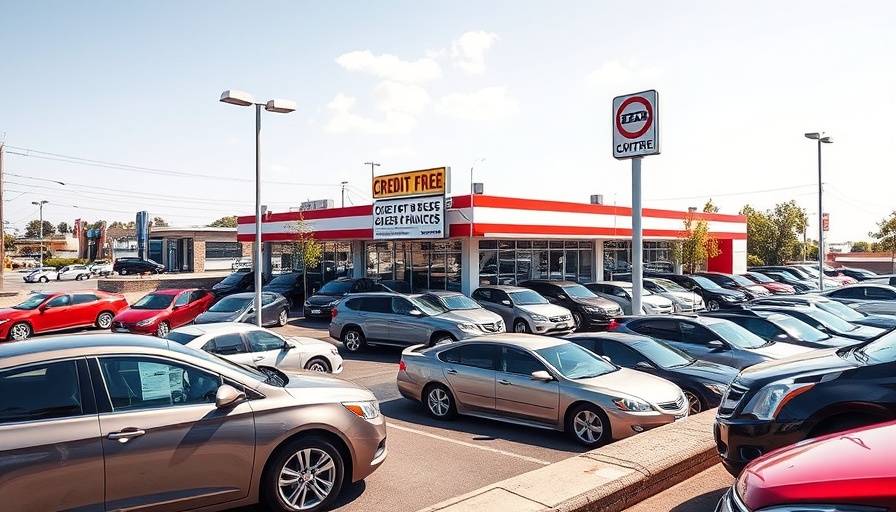
Understanding the HOG Loan Sale: A Strategic Move?
In a significant financial maneuver, Harley-Davidson Financial Services (HDFS) sold a staggering $5 billion in loans to various asset management firms. While such sales are not uncommon in the financial landscape, this particular transaction stands out due to its scale and implications for the motorcycle and auto finance sectors. Considering HDFS reported a 5.7% year-over-year decline in its portfolio for Q2, this move raises questions about strategic intent and the broader effects on both Harley-Davidson and the automotive finance market.
What This Sale Means for HDFS and Asset Management Firms
The decision to offload a significant portion of its loan portfolio allows HDFS to strengthen its balance sheet. By doing so, they can mitigate risks associated with loan defaults while capitalizing on the growing interest from asset management firms looking to diversify their investments. This sale could indicate a shift in focus, aiming for improved cash flow and reduced debt exposure, crucial for companies amidst economic uncertainty.
Navigating the Financial Landscape: Insights for Car Dealership Owners
For car dealership owners, understanding the effects of such transactions is critical. Financial stability at Harley-Davidson can result in more attractive financing options for buyers, enhancing the competitive edge for dealerships in the highly dynamic auto market. As dealerships rely heavily on financing solutions to close sales, the performance of sellers like HDFS directly influences their own operations.
Pivotal Trends in Automotive and Powersports Financing
The decline in HDFS's loan portfolio, despite the $5 billion sale, is a reminder of the fluctuating nature of financing within the automotive market. Dealerships should be aware of current trends in used car financing and interest rates, which continue to pose challenges amidst a competitive environment. Staying informed about the broader financial trends will better equip dealers to make sound decisions regarding their inventory and finance options.
Future Predictions: How Will This Sale Shape the Market?
The sale of $5 billion in loans may lead to a ripple effect across the automotive and powersports industries. As asset management firms actively seek higher yield opportunities, we might see increased investments in auto manufacturers' financing arms. This could further shape car body repair partnerships and promote innovative financing solutions, ultimately benefiting dealerships and consumers alike.
What Dealerships Need to Know About Financing
With more financial players entering the mix, it’s crucial for car dealership owners to adapt their strategies concerning customer financing options. This understanding extends to knowledge about common terms, current car loan rates, and beneficial tools and resources to facilitate customer transactions. Being proactive in finance discussions can lead to enhanced customer satisfaction and increased sales conversions.
Conclusion: Stay Ahead of Automotive Financial Trends
As the auto finance landscape shifts, staying informed about significant developments such as the HDFS loan sale is vital for car dealership owners. Increasing your understanding of financing options and trends will allow for better customer interactions and more successful sales strategies. Always be proactive and seek out the latest insights to maintain competitiveness in the marketplace.
 Add Row
Add Row  Add
Add 




Write A Comment